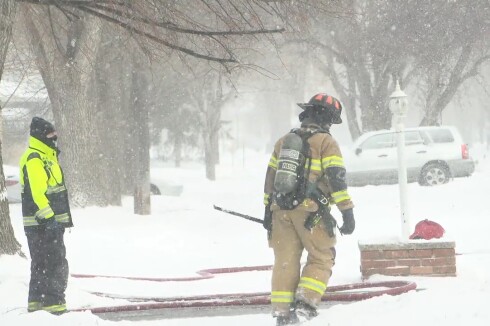DEER RIVER — A 49-day picket ended Sunday after Essentia Health Deer River and SEIU Healthcare Minnesota and Iowa members reached a contract agreement. It was the longest strike by the union in over four decades, according to a news release.
The new contract was approved by the full membership Jan. 26 with 92% support. The group includes 70 workers in the Deer River hospital and nursing home/long-term care facility.
ADVERTISEMENT
Employees will return to work this week as the facility begins regular operations. Impacted positions included nutrition services assistant, activity aide, laundry aide, cook, nursing assistant, health unit coordinator, phlebotomist, licensed practical nurse, maintenance and technicians in the environmental service, sterile processing, pharmacy, medical laboratory, surgical, floor care, medical and radiology departments.
Contract negotiations began in August with the union requesting a 55% wage increase. A five-day Unfair Labor Practice strike followed, with union members returning to work Nov. 9.
“While this was down from the 70% increase the union requested at the start of negotiations, it was still not a realistic offer,” according to Essentia Health.
In early December, the bargaining unit returned to the negotiation table with a request that equaled a compounded increase of well over 18% after three years, which Essentia claimed was “complex” and “varied widely” depending on roles and experience.
Union members began the most recent strike Dec. 9.
The union stated the new contract “significantly improved” on the offer proposed by management before the strike.
“We are proud of the progress we made and that Essentia came to the table to provide a better offer,” Becky Shereck, a radiology technician at Essentia Deer River for 16 years, said in a news release. “We love our job and we are ready to go back to work to care for our community.”
ADVERTISEMENT
Essentia said it aims to keep health care accessible in rural communities such as its Deer River location, especially when nearly half of all rural hospitals in the country are operating at a loss.
Almost 200 rural hospitals have closed since 2010, with an additional 700 at risk of closing. In Minnesota, the number of working physicians dropped by 9% last year with more extreme declines in rural areas, according to Essentia.
This is partly attributed to low reimbursement rates of roughly 70% for patients on Medicare or Medicaid, workforce shortages, and increasing labor and supply costs.
The union successfully pushed for higher wages, which it said will help attract enough staff to provide quality care to patients and facility residents.
The agreement included a 12% raise for all members over three years of the contract. Wage adjustments will also be applied to existing workers with comparable experience if new employees are hired at a higher rate.
Increased bonuses were also established for employees returning to work with less than 10 hours between shifts, as well as additional certification pay for eligible maintenance workers and market adjustments for pharmacy technicians and cooks.
Cross-facility work will be voluntary for union members, and premium pay will apply to those situations under the agreement.
ADVERTISEMENT














